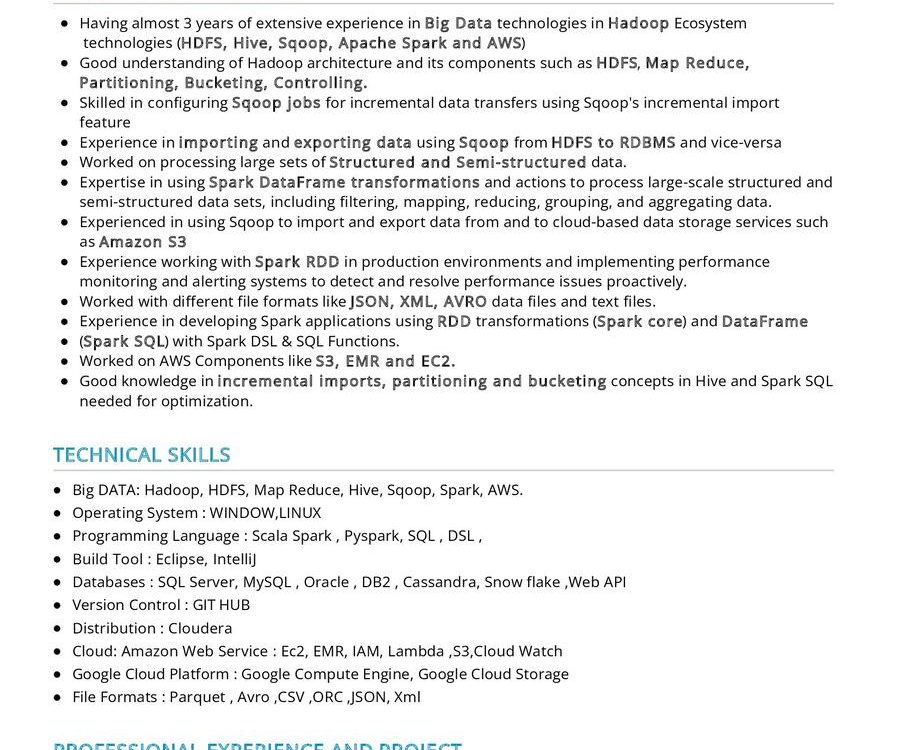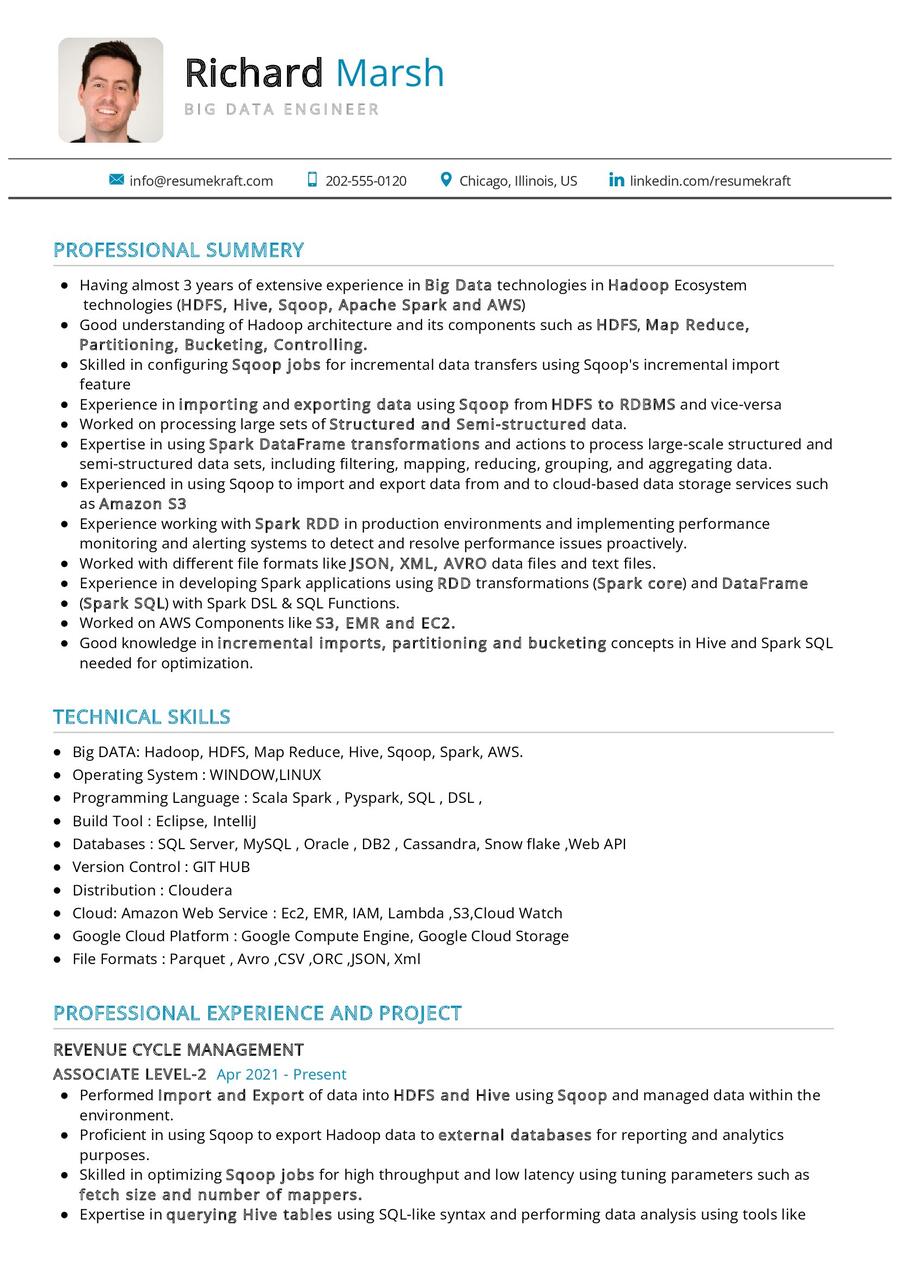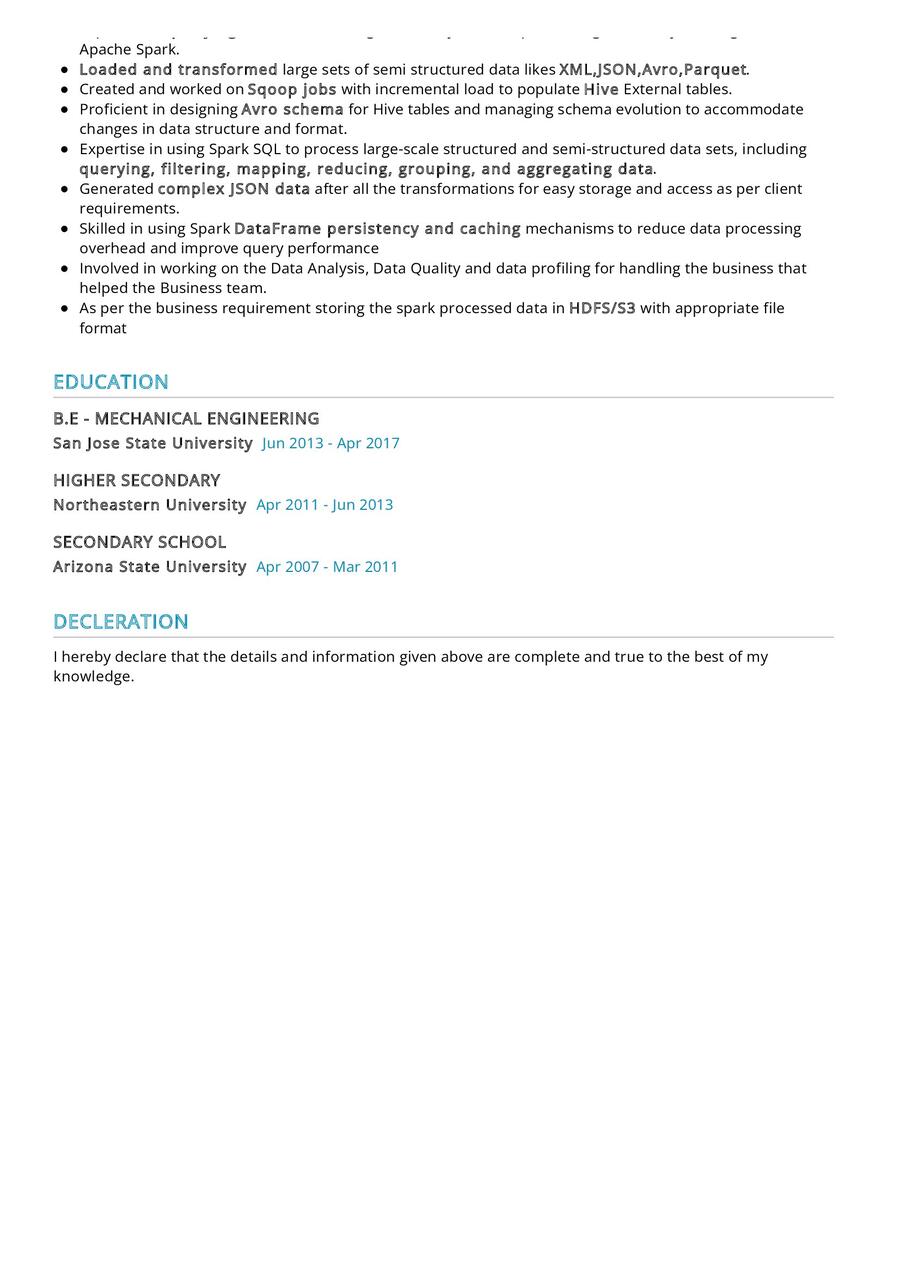Exploring the Role of a Big Data Engineer
The digital landscape is continuously evolving, and so is the demand for skilled professionals who can navigate and harness the power of big data. The role of a Big Data Engineer is crucial in organizations striving to extract meaningful insights from vast and complex datasets. In this article, we’ll delve into the multifaceted responsibilities, job requirements, and essential skills that define the path of a successful Big Data Engineer.
Job Requirements for Aspiring Big Data Engineers
Embarking on a career as a Big Data Engineer involves meeting specific requirements that blend technical prowess with a strategic mindset. Let’s explore the prerequisites to embrace the role:
- A Bachelor’s or Master’s degree in Computer Science, Data Science, or a related field, showcasing a solid foundation in the technical domain.
- Proficient understanding of big data technologies such as Hadoop, Spark, and Apache Flink.
- Experience in data modeling, ETL processes, and data warehousing.
- Programming skills in languages like Java, Python, or Scala, crucial for data manipulation and analysis.
- Expertise in working with cloud platforms, such as AWS, Azure, or Google Cloud.
- Strong problem-solving skills and the ability to design scalable and efficient data pipelines.
Securing additional certifications in big data technologies can enhance your profile and set you apart in the competitive job market.
Responsibilities of a Big Data Engineer
The role of a Big Data Engineer is dynamic, involving a combination of technical expertise and strategic thinking. Let’s explore the core responsibilities that define this role:
- Designing, developing, and maintaining scalable data pipelines for efficient data processing.
- Collaborating with data scientists and analysts to understand data requirements and deliver actionable insights.
- Implementing and optimizing ETL processes to ensure the quality and integrity of the data.
- Ensuring data security and compliance with relevant regulations in all data-related activities.
- Monitoring and optimizing the performance of big data systems to handle large volumes of data effectively.
- Staying abreast of emerging trends and technologies in big data to drive innovation within the organization.
Each responsibility presents unique challenges, providing opportunities for growth and innovation in the field of big data engineering.
Crafting a Strong CV for Your Big Data Engineering Career
Your CV is a key tool in showcasing your skills and experiences to potential employers. Here are some tips to craft a compelling CV tailored for a Big Data Engineering role:
- Highlight your experience with specific big data technologies, detailing projects where you applied your skills.
- Showcase your ability to design and implement scalable data solutions, emphasizing the impact on business outcomes.
- Quantify your achievements with metrics, demonstrating the tangible results of your contributions.
- List relevant certifications, showcasing your commitment to staying current with advancements in big data.
- Personalize your CV for each application, aligning your experiences with the specific requirements of the role.
Your CV is not just a document; it’s a reflection of your journey and your potential as a Big Data Engineer.
Big Data Engineer CV Summary Examples
Your CV summary is the first impression you make on potential employers. Craft a powerful snapshot of your journey and skills. Here are some examples to inspire you:
- “Experienced Big Data Engineer with a proven track record in designing and implementing scalable data solutions, driving significant improvements in data processing efficiency.”
- “Detail-oriented Big Data Engineer with expertise in ETL processes and data modeling, dedicated to ensuring data quality and integrity.”
- “Innovative Big Data Engineer with a strong programming background in Python and extensive experience in optimizing big data systems for peak performance.”
Your CV summary is your opportunity to grab the attention of recruiters and showcase your unique value as a Big Data Engineer.
Experience Section for Your Big Data Engineer CV
Your experience section is the heart of your CV, narrating the story of your career. Here are some examples to guide you:
- “Led the development of a scalable data pipeline, resulting in a 30% improvement in data processing speed.”
- “Collaborated with cross-functional teams to deliver actionable insights from complex datasets, contributing to data-driven decision-making.”
- “Implemented cloud-based solutions, reducing infrastructure costs by 20% while enhancing data accessibility.”
Your experiences are the chapters in your career story, showcasing your impact and contributions as a Big Data Engineer.
Educational Background for Your Big Data Engineer CV
Your educational journey is a foundation for your expertise. List your educational milestones with pride:
- Master of Science in Data Science, XYZ University, a journey of in-depth learning and specialization, 2017.
- Bachelor of Computer Science, ABC University, the cornerstone of your technical knowledge, 2015.
- Cloudera Certified Data Engineer, a recognition of your proficiency in big data technologies, 2018.
Each educational qualification is a stepping stone, contributing to your success as a Big Data Engineer.
Skills Every Big Data Engineer Should Include in Their CV
Your skill set is your arsenal, equipped with tools that showcase your abilities. Here are essential skills for a Big Data Engineer to include in your CV:
Technical Skills:
- Proficient in big data technologies: Hadoop, Spark, Apache Flink.
- Expertise in data modeling, ETL processes, and data warehousing.
- Programming skills in Java, Python, or Scala for data manipulation and analysis.
- Familiarity with cloud platforms: AWS, Azure, Google Cloud.
- Experience with big data storage and processing solutions.
Soft Skills:
- Analytical thinking and problem-solving abilities for effective data solutions.
- Excellent communication skills to collaborate with cross-functional teams.
- Attention to detail in ensuring data quality and compliance.
- Adaptability to stay current with evolving big data technologies.
- Team collaboration for successful implementation of data projects.
Each skill is a tool, showcasing your proficiency and versatility as a Big Data Engineer.
Common Mistakes to Avoid in Your Big Data Engineer CV
Avoiding common pitfalls is crucial in crafting a CV that stands out. Here are mistakes to steer clear of:
- Avoid a one-size-fits-all approach; tailor your CV for each application to highlight your unique fit for the role.
- Don’t just list job duties; showcase your achievements and the impact of your contributions.
- Include a cover letter to complement your CV, providing an opportunity to connect with potential employers.
- Balance technical details; avoid overwhelming your CV with jargon that may obscure your true value.
- Proofread your CV to maintain a professional image; errors can detract from your credibility.
Avoiding these mistakes ensures your Big Data Engineer CV is authentic and compelling, increasing your chances of landing your dream job.
Key Takeaways for Your Big Data Engineer CV
As we conclude this comprehensive guide, remember these key points when crafting your Big Data Engineer CV:
- Highlight your expertise with specific big data technologies and showcase the impact of your contributions.
- Quantify your achievements with metrics, providing tangible evidence of your success as a Big Data Engineer.
- Personalize your CV for each application, aligning your experiences with the specific requirements of the role.
- Include relevant certifications to demonstrate your commitment to staying current with advancements in big data.
Your CV is your professional story, a narrative of your journey, skills, and potential as a Big Data Engineer. Best of luck!
Finally, feel free to utilize resources like AI CV Builder, CV Design, CV Samples, CV Examples, CV Skills, CV Help, CV Synonyms, and Job Responsibilities to create a standout application and prepare for the Big Data Engineer job interview.



